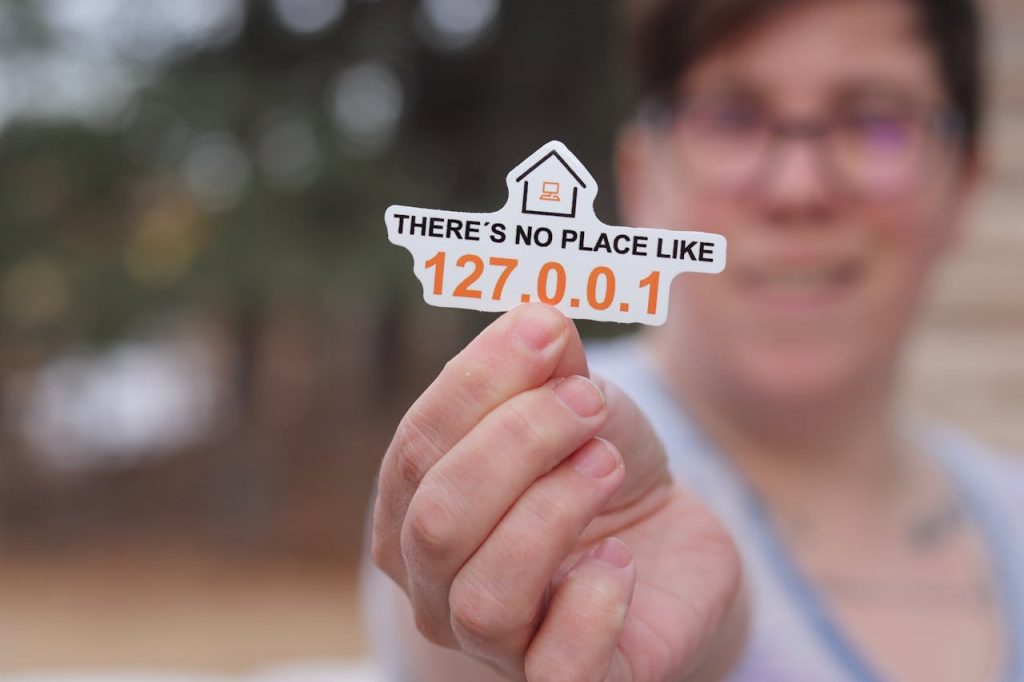Breanne Throne
Breanne Thorne can usually be found binging on indie series on Netflix. When not absorbed in the latest gut wrenching thriller, Breanne loves dancing.
“At the end of the day, the goals are simple: safety and security.” We live in an era where data protection is...

Image Credits: pexels
“At the end of the day, the goals are simple: safety and security.” We live in an era where data protection is one of the users’ primary concerns due to increasing cyber-attacks. Although many organizations have started working towards it, it remains an absurd concept to many people.
One of the most common threats that a layman feels regarding data security is what exactly an IP address is and what it can reveal about the user? Here in this article, we will address these aspects regarding IP addresses.
First of all, billions of computer users worldwide don’t even know what an IP address is to put it in simple terms. An IP address is a network address for your computer so that the internet knows where to send you the mails, data, pictures, etc. Internet Protocol version 4 defines an IP address as a 32-bit number.
These addresses are written in a human-readable format. A typical example of an IP address can be 2231.453.670.13. But don’t worry unless you are a techie, you don’t have to deal with this.
Now that you have a basic idea of what an IP address is, we shall now have a close look at what your IP address can reveal and bust the myths surrounding it. While every computer is given its IP address, the outside world rarely has access to this address.
A catch here is, when you send an email or visit a website, the IP address being shared is of your local router provided by your Internet Service Provider and not the individual address of your computer.
But for instance, if someone gets your computer’s IP address, then the most personal information shared is your geolocation. But, the silver lining is that it will not share your precise location; instead, it will just share the area, which will give only a rough idea of your location. Interestingly, there is more to it, and it is not as simple as it may seem.
A person having your IP address has a bit of access to who you are and what kinds of sites and contents are being surfed by you on your computer. Using these bits and pieces, a person can stitch together any information about the user through his IP address.
If someone has access to your geolocation, they can also restrict your access to some sites. It is similar to how Netflix or Hulu keeps people from accessing US content from India and vice versa.
An IP address can reveal many online activity details about you, which leads to an invasion of privacy. An example of privacy invasion is “personalized advertisements,” which deliver location-based advertisements in the native language.
Hackers can also hack your IP address and sell it to the dark web for profit. Ultimately, the dark web will use your database to impersonate you or find personal information or use it in scams.
Since most of us love our privacy and dislike censorship, it becomes crucial for us to learn how to hide our IP addresses to make our data safe and secure.
The most common way to hide our IP address is by using a VPN (Virtual Private Network), a software service that encrypts all of the data sent to and from the internet and routes it through a VPN server to another location. These VPN services are pocket friendly and cost you a mere amount of money to access hundreds and thousands of servers across the globe.
A VPN will hide your real IP address and make you indistinguishable from all the other users, ensuring anonymity because your online activity cannot be traced back.
Another way of hiding and protecting the IP address is by connecting to a different network to change your IP address. If you feel that the IP address you are using is being compromised, blocked, or tracked by someone, you can change your network to get a new one.
For this, you can connect your device to a public or a private Wifi network or use your smartphone’s mobile data collection. But while using this method, one has to be careful as public Wifi and open networks are a hunting ground for the hackers who take undue advantage of the lack of encryption.
So this method is not so highly recommended, and one can go on with the sites like TOR or use a NAT firewall to hide the IP address as these sites are encrypted and have authentication. access to the admin username and password for your IP address, from here. There are numerous other ways to hide your IP address, and you can use them at your convenience.
As we have discussed in detail in this article, what all your IP address can reveal about you, it entirely depends on your choice whether you want to hide your IP address or not. But, in today’s time, data security should be every user’s chief concern because at the end of the day, “prevention is better than cure,” isn’t it?
Suggested:
Why Your Type of IP Address Matters?